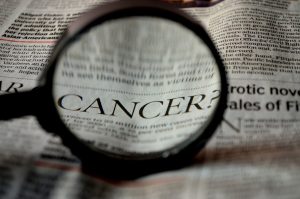Very few people realize that the #1 most common STI (sexually transmitted infection) is HPV (human papillomavirus). According to the American Cancer Society it’s responsible for the ~13,800 new cases of invasive cervical cancer, and the ~4,290 women who will die from cervical cancer just this year in the US. And it is preventable, because virtually all cervical cancer is attributable to this sexually transmittable virus.
If teens would heed the warning to be abstinent from all forms of sexual activity they would remove themselves from any chance of getting HPV-related cancers. If WE (the older generations) had been abstinent, we wouldn’t be the most-diagnosed age group! It takes years for the cancers to develop if they are not detected. If you’re a woman reading this and your partner has ever had sex with anyone but you (either cheated or had s*x with even one person before you), or you had s*x with anyone but your current partner even one time (as a teen or since), you can significantly increase your chance of detecting HPV-caused cancer before it’s too late by getting a PAP smear. That’s right…that test we are told to get every year is designed to detect cancerous or precancerous cells from an HPV infection.
What is our health system doing to stop this deadly cancer? Too many peo ple rely on a message to “use condoms.” BUT…HPV is not reliably preventable via condoms because it is spread skin-to-skin (and condoms don’t cover all skin that is touching during intimate contact). Check out the exact words from the CDC: “Genital ulcer diseases and HPV infections can occur in both male and female genital areas that are covered or protected by a latex condom, as well as in areas that are not covered.” What about the vaccine we’re told our children should get by age 12? Many of your children have probably had one of the vaccines that prevent 2 of the roughly dozen cancer-causing strains of HPV. (Other strains can produce genital or oral warts). Those two strains are responsible for 70% of the cancers…leaving 30% they’re still vulnerable to. By the way, you may have wondered about the message you send to a teen by getting this vaccine. I mention in the classroom that this is the #1 STD out there, and that if they’ve been vaccinated it’s not because their parents think they plan to have s*x, but because doctors routinely recommend it. Also, there is such a thing as dating or stranger s*xual assault by someone likely to have HPV.
ple rely on a message to “use condoms.” BUT…HPV is not reliably preventable via condoms because it is spread skin-to-skin (and condoms don’t cover all skin that is touching during intimate contact). Check out the exact words from the CDC: “Genital ulcer diseases and HPV infections can occur in both male and female genital areas that are covered or protected by a latex condom, as well as in areas that are not covered.” What about the vaccine we’re told our children should get by age 12? Many of your children have probably had one of the vaccines that prevent 2 of the roughly dozen cancer-causing strains of HPV. (Other strains can produce genital or oral warts). Those two strains are responsible for 70% of the cancers…leaving 30% they’re still vulnerable to. By the way, you may have wondered about the message you send to a teen by getting this vaccine. I mention in the classroom that this is the #1 STD out there, and that if they’ve been vaccinated it’s not because their parents think they plan to have s*x, but because doctors routinely recommend it. Also, there is such a thing as dating or stranger s*xual assault by someone likely to have HPV.
My concern is for also for us…as many of us will be diagnosed with one of the cancers years after our exposure to HPV. the CDC says the median age at diagnosis for HPV-related cancers is as follows:
- 49 years for HPV-associated cervical cancer.
- 68 for HPV-associated vaginal cancer.
- 66 for HPV-associated vulvar cancer.
- 69 for HPV-associated penile cancer.
- 62 among women and 59 among men for HPV-associated anal cancer.
- 63 among women and 61 among men for HPV-associated oropharyngeal cancers.
Unless you and your partner had no s*xual contact with anyone before marriage or lifelong commitment, and unless you’ve both been faithful, YOU should be concerned, and get those PAP smears as recommended. An HPV test can be purchased for women, but there is no approved test for men. A friend of mind, after decades of marriage found out her spouse had cheated. The first thing I said to her was “You need to be tested for HPV.” Sure enough, she has it and will have to keep vigilant about getting her yearly PAP. Oh…and it’s not just cervical cancer we have to be worried out. As I tell teens…mouths love this skin-to-skin spread STI. The CDC estimates 70% of oropharyngeal cancers are attributable to HPV, and that about 10% of men in the U.S. and 3.6% of women have oral HPV.
